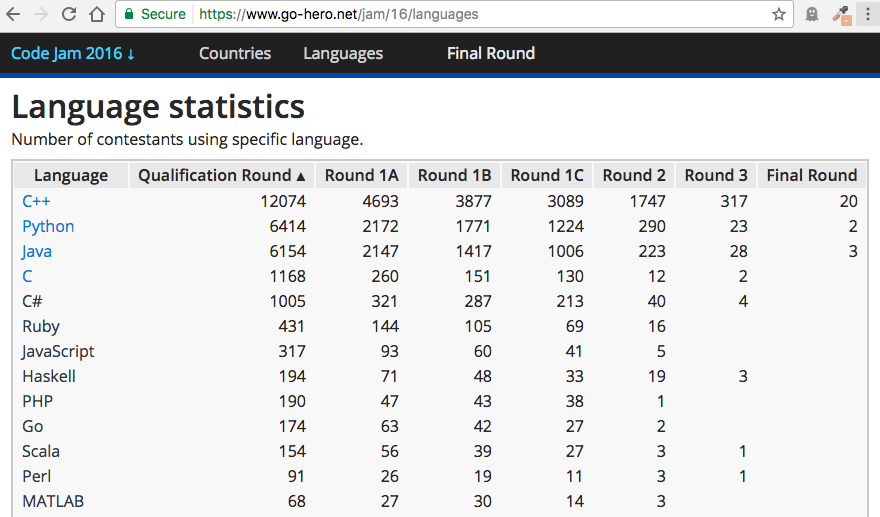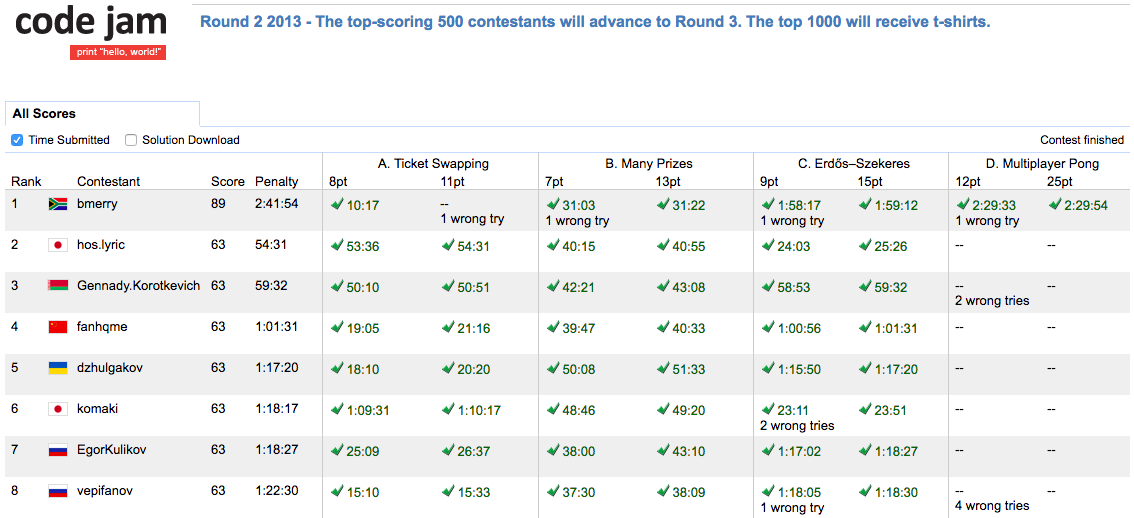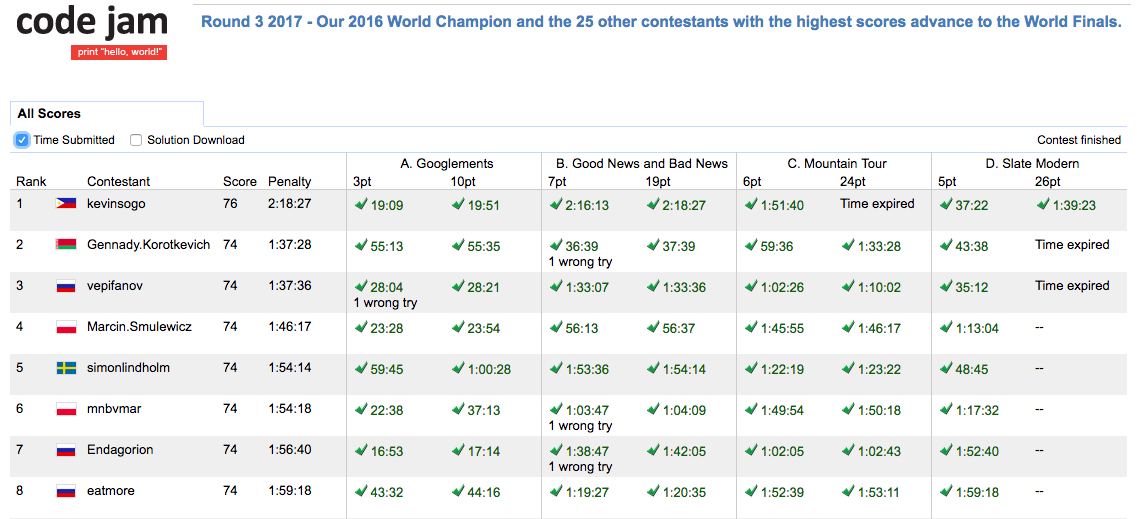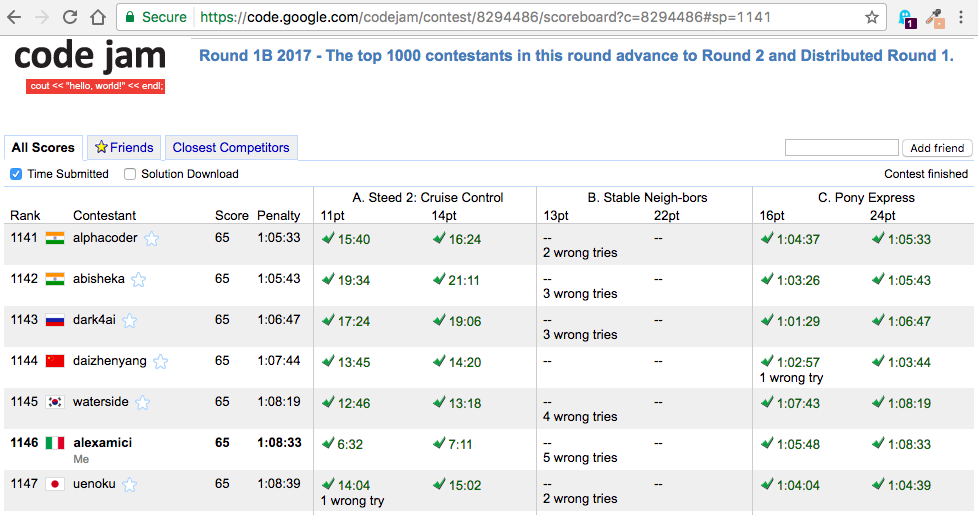Fast Python! Coding competitions with CPython and PyPy - EuroPython 2017
By Alessandro Amici
Fast Python! Coding competitions with CPython and PyPy - EuroPython 2017
In a coding competition you want to solve problems “fast”… why would you choose a “slow” interpreted language like Python? Because the “slow” Python wins competitions more often that most people think. We will show how coding competitions work, what are the resources and constraints that competitors need to take into account, and we will find out that, like very often in real life, the actual processing time is only a small term in the complex equation that describe a competition. The “faster” PyPy may help in gaining raw speed, but that is not the real advantage it gives you in a competition.






